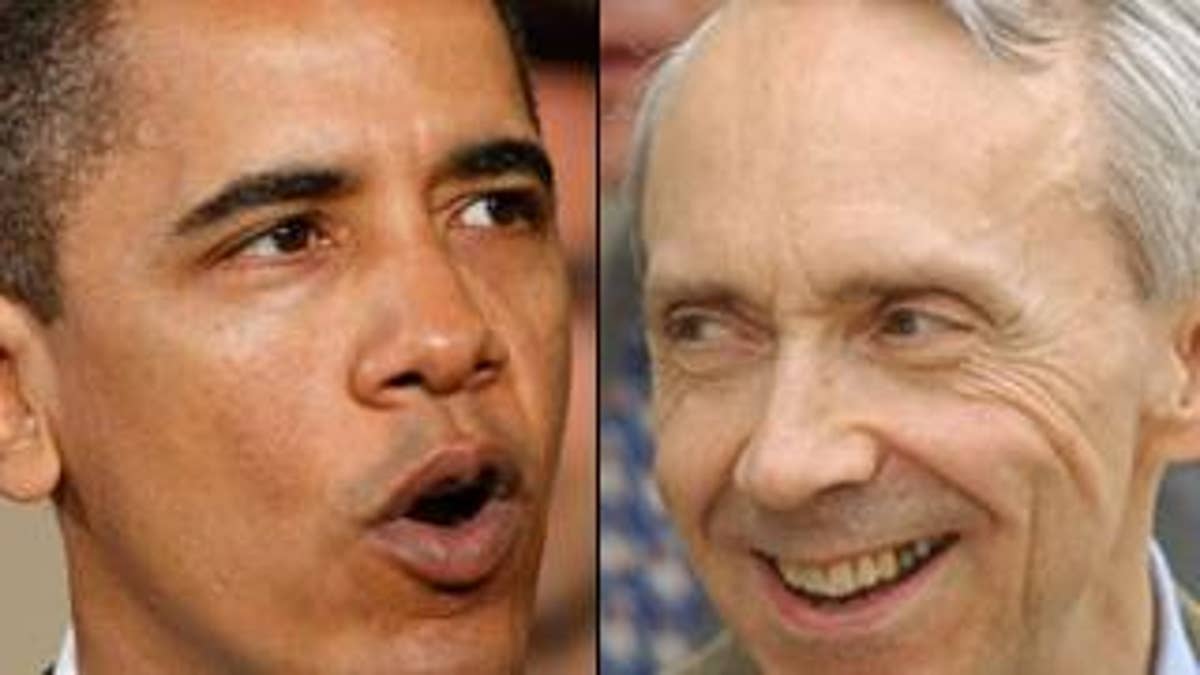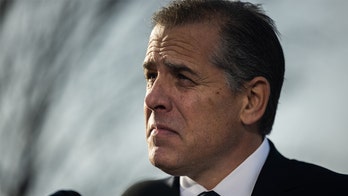
President Obama voted against the last two conservative justices to join the Supreme Court. He once said that, if he were president at the time, he would not have nominated the court's other two conservatives.
Obama has described his ideal Supreme Court as being a "refuge of the powerless" -- a populist attitude toward the nation's highest court that suggests the sort of person he will nominate to replace Justice David Souter, who is expected to resign this summer.
For now, the White House is staying mum on news of Souter's impending retirement. The administration is giving Souter a chance to make his own announcement and is many steps away from sifting through potential nominees.
"The president has not received a formal communication from Justice Souter and he deserves the right to make his own announcement," White House spokesman Bill Burton said Friday.
But the guessing game has already begun over one of the most consequential and lasting decisions a president can make, and Obama's public statements in the last two years about his view of the Supreme Court speak volumes to the kind of nominee he will likely choose.
Obama has frequently described his ideal nominee as someone who can relate to ordinary Americans.
"I want people on the bench who have enough empathy, enough feeling, for what ordinary people are going through," Obama said in March 2008 at a rally in Ohio.
"I will look for those judges who have an outstanding judicial record, who have the intellect, and who hopefully have a sense of what real-world folks are going through," he said at the October 2008 presidential debate in New York.
Obama elaborated on what he means by "real-world folks" while speaking to Planned Parenthood in July 2007. There he showed disdain for those who view the courts as "rubber stamps of the powerful in society."
He described another way of looking at the justice system.
"And then there's another vision of the court that says that the courts are the refuge of the powerless," he said. "Because oftentimes they can lose in the democratic back and forth. They may be locked out and prevented from fully participating in the democratic process.... And we need somebody who's got the heart -- the empathy -- to recognize what it's like to be a young teenage mom. The empathy to understand what it's like to be poor or African-American or gay or disabled or old -- and that's the criteria by which I'll be selecting my judges."
Such comments have led to speculation that Obama is looking for justices with real-life experiences, like Massachusetts Gov. Deval Patrick or Michigan Gov. Jennifer Granholm, among others.
Souter was appointed by President George H.W. Bush, a Republican, but he generally has voted with the liberal wing of the court, so Obama's appointment of another liberal justice would not shake the ideological makeup of the body. If a conservative justice were retiring, Obama would be in a position to break the deadlock and tilt the court decidedly to the left.
But Souter is not considered the court's most liberal member, so Obama can still nudge the makeup more to the left.
"We're kidding ourselves if we don't think it's going to. It's going to shift left, yes," said Jay Sekulow, chief counsel at the American Center for Law and Justice. "It's the beginning of the reshaping of the federal judiciary here."
Justice Ruth Bader Ginsburg, who is recovering from pancreatic cancer, is the only woman among the nine justices, leading to speculation that Obama will want to choose a female nominee.
A couple leading possibilities are U.S. Appeals Court Judge Sonia Sotomayor or Solicitor General Elena Kagan.
In his few years on the national stage, Obama practically ruled out ever considering a conservative justice. As a U.S. senator, he voted against Chief Justice John Roberts and Justice Samuel Alito, even joining a failed filibuster against the latter.
At Pastor Rick Warren's candidates' forum last August, Obama said he would not have nominated Justices Antonin Scalia or Clarence Thomas if he had been president.
"I would not have nominated Clarence Thomas," Obama said. "I don't think that he ... was a strong enough jurist or legal thinker at the time for that elevation, setting aside the fact that I profoundly disagree with his interpretations of a lot of the Constitution.
"I would not nominate Justice Scalia, although I don't think there's any doubt about his intellectual brilliance, because he and I just disagree," he added.
Obama has said abortion will be an "important issue" in the context of judicial appointments, though "we shouldn't apply a strict litmus test."
"I would not provide a litmus test. But I am somebody who believes that Roe versus Wade was rightly decided," he said at the October 2008 debate. "So this is going to be an important issue. I will look for those judges who have an outstanding judicial record, who have the intellect and who hopefully have a sense of what real-world folks are going through."
A Democratic source on Capitol Hill told FOX News the White House, for now, is being tight-lipped about Souter because it wants to appear focused on the immediate needs of the economy, U.S. automakers and the H1N1 flu outbreak.
Souter's plan to retire came unexpectedly, so the Obama administration "wants to do it right, not necessarily do it fast," the source said.
FOX News' Mosheh Oinounou, Mike Emanuel and Major Garrett contributed to this report.




